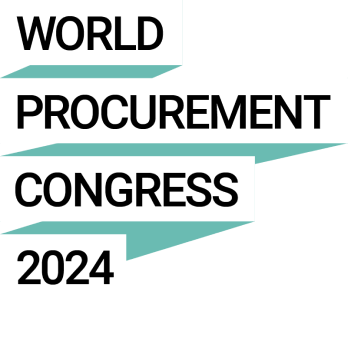In a world of complex supply chains and extreme price volatility, category managers need all the intelligence they can get to make the smartest decisions. But not all market intelligence is created equal and the information on which category managers rely may not lead to the best decisions for the business.
To be truly valuable, market intelligence must have six key characteristics:
- Specific: Category managers ask a lot of extremely specific questions. They might want to know, for example, how switching a supply source from Brazil to South Africa might affect costs and risk. Intelligence that can answer a specific question, for a specific business, has far more value than general research on the market in South Africa.
- Objective: Decisions made using inaccurate or biased intelligence may not be the right ones for the business – and may even be actively damaging. Independent intelligence that isn’t biased towards a particular organisation, geography or worldview will provide a more reliable foundation for decision-making.
- Current: – The market environment is constantly in flux – look at how the price of oil fluctuated unpredictably throughout 2018, for example, or the impact of China’s 2019 swine fever outbreak on global pork prices. Intelligence based on last month’s or last year’s data can cause buyers to make subpar decisions and may even damage procurement’s credibility with stakeholders.
- Robust: When making strategic decisions, category managers need robust, reliable evidence drawn from multiple data sources. The cost indicated by a single supplier isn’t sufficient to build a robust country model, for example – it requires many data points, including logistics costs and the cost of production in each territory. Triangulating each data point with at least two other sources will create a rich, accurate picture.
- Contextual: Intelligence must be contextualised to the business and end-users; analysis that leads to actionable insights and not just more noise. Only by ensuring that relevant and reliable insight is distilled from multiple data sources will category managers get guidance on the “so what?” to support goals around innovation, risk management and category excellence.
- Meaningful: Intelligence that is poorly presented (for example, in multiple spreadsheets) could be misinterpreted or it may take a long time for different stakeholders to understand what they’re looking at and come to a consensus decision about what to do. For the best results, procurement professionals should present intelligence in a compelling and immediately meaningful way to everyone who needs to use it.
Six ways to source market intelligence
When sourcing market intelligence, category managers have six options; both internal and external. Internal resources include:
- Desk research: An internet search of freely-available sources, like trade publications, analyst reports and supplier websites, can yield quick answers to simple questions. While it costs nothing (apart from the time spent), the data isn’t always objective or aligned to the question being asked, and as it’s available to everyone, it doesn’t provide an advantage. It’s often a good starting point, but category managers who rely solely on internet searches may make poorly informed decisions and deliver less than optimal results.
- Information from suppliers: Suppliers and internal stakeholders can be useful sources of information, offering specific knowledge of individual products, categories, countries and factors affecting the supply chain. This information can be helpful but should be triangulated against other independent data points to remove any bias and to gain a more rounded picture.
- Internal intelligence team: Organisations that are serious about procurement’s strategic potential may consider establishing an internal intelligence team to research specific queries. This can transform procurement’s contribution to the business, but it represents a major investment and the necessary data science and data engineering skills may be hard to find.
The other option – and one that’s increasing in popularity as procurement seeks to play a more strategic role – is to work with a specialist external partner. Hackett Group has found that 31% of organisations currently work with a partner while another 8% plan to do so within two to three years.
There are broadly three types of specialist market intelligence providers for procurement, supply chain and category management professionals:
- Syndicated intelligence provider: Conducted and funded by a market research firm, independent research from a syndicated intelligence provider can deliver reliable, objective, high-level data on market trends. However, the templatised (that is, standard) reports are designed for a broad audience, so are unlikely to offer the level of granularity needed to answer specific questions.
- Custom intelligence provider: A custom intelligence partner can provide robust, objective and evidence-based research in response to specific questions – often using a mix of market data and the client’s internal data. They can also conduct primary research to get information directly from sources, which can be difficult to do in-house. These firms tend to employ teams of skilled and specialist analysts and data scientists while such businesses also use the latest technologies to gather, analyse and visualise the data for clients straight away.
- Hybrid intelligence provider – A new breed of hybrid provider is emerging, offering both templatised research and customised intelligence services. This option can provide the best of both worlds; readily-available independent research into broad market trends, and the ability to conduct in-depth custom research when there’s a specific question that procurement needs to answer.
See how companies across sectors are benefiting from market intelligence
A new white paper from The Smart Cube, Achieve Category Management Excellence with Market Intelligence, explores the growing need for sophisticated market intelligence and provides a checklist to help category managers find the right partner and the right insights.
It also includes case studies of organisations across the consumer packaged goods, industrial and energy sectors that have used market intelligence to achieve multimillion-dollar savings, identify the most strategic suppliers and negotiate more favourable terms with incumbents. Access it here.
The Smart Cube’s biweekly Inside Procurement series, hosted by Omer Abdullah, covers a range of topics through both podcasts and vodcasts.
This contributed article has been written by a guest writer at the invitation of Procurement Leaders.

















